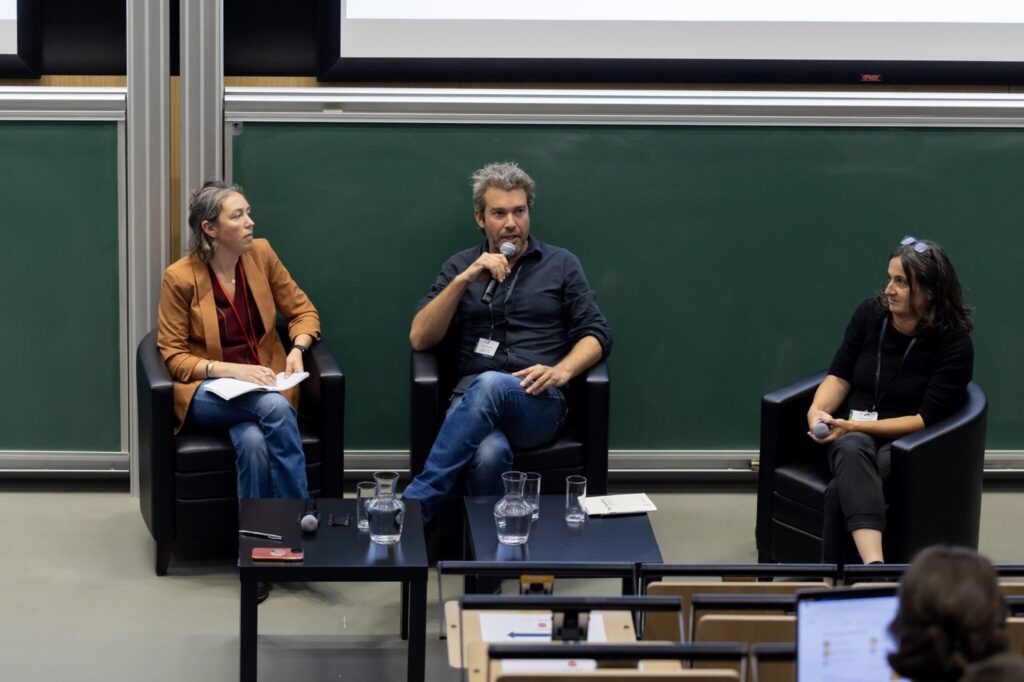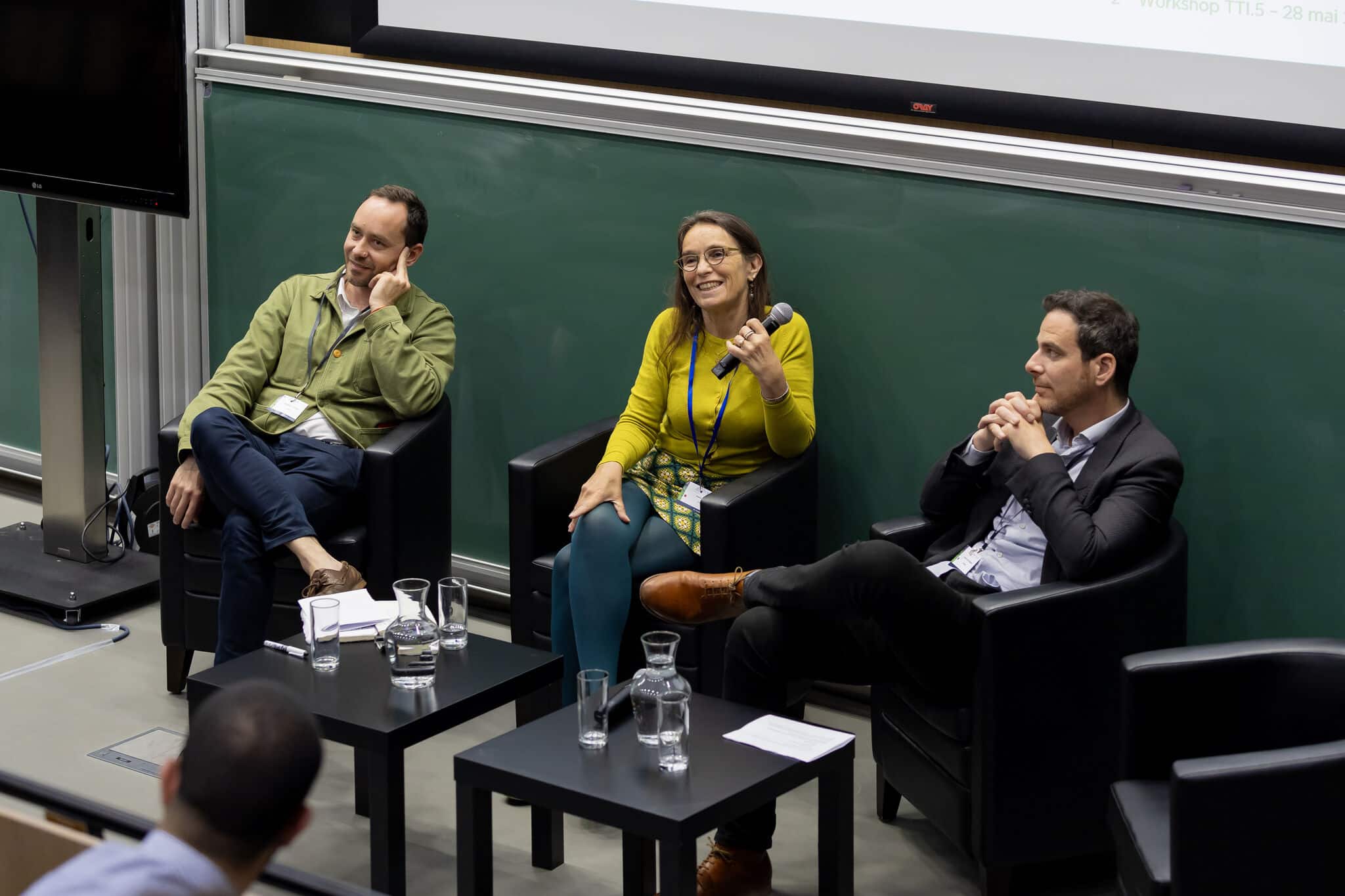Workshop TTI.5: Mines Paris – PSL studies the geopolitical and ethical tensions associated with water management


To cope with water scarcity, it is imperative to implement a series of concerted measures. Sandrine Selosse, Senior Researcher at the Centre de Mathématiques Appliquées (CMA), addressed the issue of the pressures exerted by human activities, which are disrupting entire societies, generating political instability and growing food insecurity, all of which are factors conducive to conflict. Historically, fossil fuels have played an important role in feeding the world, making it possible to increase farm mechanization, boost fertilizer production and improve food processing and transportation. However, in the current context of reduced access to and use of oil, this dependence now threatens food security. As part of the transition to clean energy, water is a prerequisite for mitigation efforts, which implies strengthening cross-border cooperation to ensure an equitable distribution of water resources between territories. The Water-Energy-Food Nexus, an integrated approach to resource management and sharing, enables experts, researchers and policy-makers to think across sectors to ensure access to water, energy and food for all. Such a more collaborative approach is needed to define coherent public policies at national, local and international levels, in order to respond in an integrated way to the complex challenges of our time.
Bruno Scalabrino, senior lecturer at theUniversité Côte d’Azur, highlighted a statistic: 37% of the French population does not make the link between anthropogenic activities and climate disruption. This ignorance is particularly alarming in view of the intensification of extreme precipitation events, observed unevenly around the world, from northern France to India, via China. Over the past two decades, these extreme events have affected 1.5 billion people, and no continent has been spared.
In the Pyrénées-Orientales region of France, the situation is reversed, with extreme water stress observed over the past few years. In neighboring Spain, the region of Catalonia and the city of Barcelona are facing major water supply challenges, both for the local population and for tourists. Over the past 20 years, 1.6 billion people have been affected by droughts. Projections indicate that, in the face of growing water scarcity, both populations and various economic sectors will intensify their use of this vital resource, exacerbating conflicts.
The majority of water-related conflicts are intra-state. Of the 590 aquifers in the world, 290 are transboundary, with only a third having bilateral or trilateral agreements. Increasing pressure on these resources is leading to heightened tensions, often marked by accusations of pollution or poor water management, at regional, governmental and intergovernmental levels. It is crucial that scientific institutions work together to share knowledge and make informed decisions, in order to prevent these tensions and conflicts.
Sophie Demassey, Senior Lecturer at the CMA, spoke about the importance of computerized decision-support systems, and the chain of digital tools that make them up. The first step in this process is to collect, store and analyze data using business intelligence tools. The discovery of hidden structures and forecasting is then carried out by machine learning tools. Simulation technologies, such as digital twins, build on these forecasts, enabling decision-makers to evaluate different options. Finally, mathematical optimization tools calculate the best option for a given quantitative criterion.
To be informed, decisions must be based on reliable, automated tools, which decision-makers must be able to appropriate. However, in the context of water management, decision-making problems present difficulties at every stage of the process. Applying an economic value to living things is an arduous task, often hampered by financial interests that take precedence over ecological considerations. Analytical or numerical formalization of the physical or chemical properties of water also poses major challenges. The algorithmic complexity of these models is an obstacle to the direct application of conventional numerical tools, and today’s global water issues call for innovative, cutting-edge techniques.
Mines Paris – PSL, through The Transition Institute 1.5 (TTI.5), is at the forefront of research into environmental and climate issues. This institute, dedicated to the low-carbon transition, carries out ambitious projects aimed at understanding and resolving the complex challenges linked to the increasing scarcity of water resources, among others. Thanks to an interdisciplinary approach that integrates engineering sciences, humanities and social sciences, and strong collaboration with industrial players and public decision-makers, TTI.5 is making a significant contribution to the development of innovative, sustainable solutions. By exploring the global and local dynamics surrounding water resources, Mines Paris – PSL is reaffirming its commitment to shaping a more sustainable and equitable future.
Every month, we bring you the latest news from the heart of Mines Paris – PSL, so you can keep up to date with innovation, research, student life and events in our community.

On May 28, 2024, the Mines Paris – PSL campus hosted the second edition of the TTI.5 Workshop, organized by The Transition Institute 1.5 (TTI.5). This...